For consumer goods packaging, sustainable packaging is no longer a "buzzword" that people use at will, but has become part of the spirit of traditional and emerging brands. In May, SK Group conducted a survey of 1,500 U.S. adults about their attitudes toward sustainable packaging, and found that less than two-fifths (38 percent) of Americans said they were confident of proper recycling at home.
While consumers may lack confidence in their recycling habits, that doesn't mean recyclable packaging isn't important to them. SK Group's research found that nearly three-quarters (72 percent) of Americans are likely to prefer products in packaging that is easy to recycle or reuse. In addition, 74 percent of respondents aged 18-34 said they would likely buy eco-friendly products.
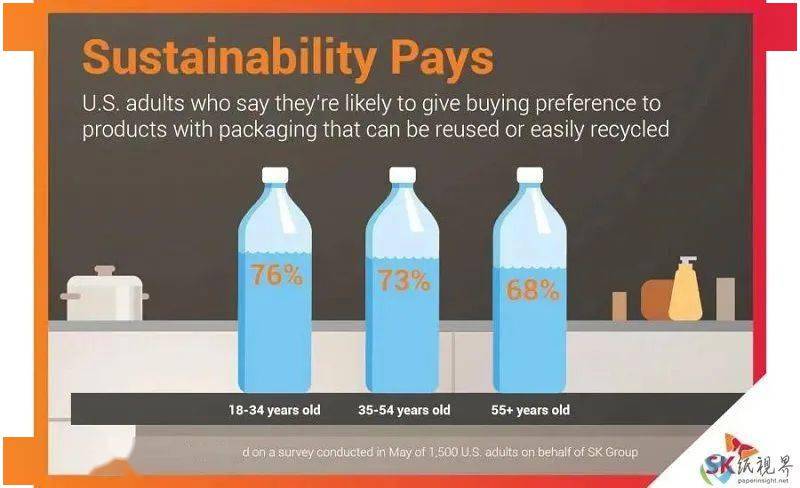
While the apparent preference for recyclable packaging remains, the study also found that 42 percent of respondents said they didn't know that some recyclable packaging, such as plastic bottles, could not be recycled unless you removed the label and other packaging materials first.
In Mintel's 2021 report, U.S. Beverage Packaging Trends, Mintel also highlighted consumer interest in sustainable packaging, but noted that its coverage is still limited.
Mintel said: "Overall, consumers are often only involved in simple sustainable actions, such as recycling, and they want brands to make sustainable living as simple as possible. Essentially, consumers love products that offer easy-to-understand sustainable benefits, such as plastic bottles made from recycled plastic – the use of rPET is in line with the high level of consumer interest in recycling. ”
However, Mintel also stressed the importance of environmentally conscious consumers to brands, as this group typically earns higher and is willing to pay more for brands that align with their values. "Strong sustainability propositions resonate with consumers leading future food and beverage trends, making sustainable packaging propositions a key differentiator and opportunity for emerging brands," the report said. Investments in sustainable practices now will pay off in the future. ”
When it comes to sustainable packaging investments, many beverage manufacturers are willing to pay high prices for PET (rPET) packaging and launch new products for aluminum packaging. Mintel's report also highlights the spread of aluminium packaging in beverages, but also notes that there are still educational opportunities for aluminium packaging as a sustainable packaging-to-consumer link.
"The popularity of aluminum ultra-thin cans, the growth of aluminum bottles, and the widespread use of aluminum in the alcoholic beverage industry have raised concerns about the benefits of aluminum and have driven the adoption of aluminum by brands," the report said. Aluminum has significant sustainability advantages, but consumers mostly perceive other beverage packaging types to be more environmentally friendly, suggesting that brands and packaging manufacturers need to educate consumers about aluminum's sustainability credentials. ”
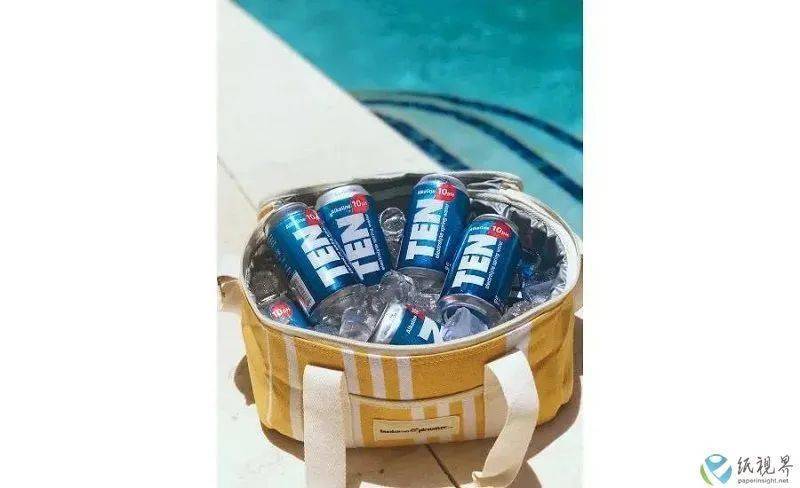
While sustainability has driven many innovations in beverage packaging, the pandemic has also impacted packaging choices. Mintel's report states: "The pandemic has changed the way consumers work, live and shop, and packaging must evolve to respond to these changes in consumers' lives. It is worth noting that the pandemic has created new opportunities for larger and smaller sizes of packaging. ”
Mintel has found that for larger packages of food, in 2020, more are consumed at home, and the number of telecommuting employees is also increasing. The rise of online shopping has also led to increased consumer interest in large packages. Mintel notes: "During the pandemic, 54% of consumers bought groceries online, compared to 32% before the pandemic. Consumers tend to buy larger inventory through online grocery stores, which gives brands the opportunity to promote large packages of goods online. ”
In terms of alcoholic beverages, experts predict that as the epidemic repeats, more household consumption will still exist. This can lead to a large demand for large packaged products.
Although large packages have been favored during the epidemic, there are still new opportunities for small packages. Mintel's report said: "Although the overall economy is rapidly recovering from the epidemic, unemployment remains high, indicating that business opportunities for small, economical packaging still exist. Mintel also pointed out that small packages allow health-conscious consumers to enjoy themselves. The report notes that Coca-Cola introduced a new 13.2-ounce bottled beverage earlier this year, and Monster Energy also launched a 12-ounce canned beverage.
(Source: Sohu News)
Lululemon invests in sustainable materials producer Genomatica, which will develop environmentally friendly nylon fabrics
Lululemon Athletica inc. (hereinafter referred to as Lululemon), a well-known Yoga sportswear retailer in Canada, announced that it has invested in Genomatica, an American producer of sustainable materials, and signed a multi-year cooperation agreement to use more sustainable raw materials in Lululemon's products.
The two companies will work together to introduce plant-based nylon to replace traditional nylon fabrics and mitigate their impact on the environment. Nylon is currently the most used synthetic raw material in Lululemon products.
Genomatica uses biochemical and fermentation technologies to transform plant-based raw materials into modular materials that can be widely used, and further produces them into various types of yarns and particles used to make materials such as nylon, replacing the petrochemical materials originally used. They have successfully developed Bio-BDO (biochemical butane glycol), a variety of alternative plant raw materials used in everyday products such as plastics, spandex and cosmetics. By licensing factories and providing technical support, Genomatica has successfully commercialized these raw materials for large-scale production.
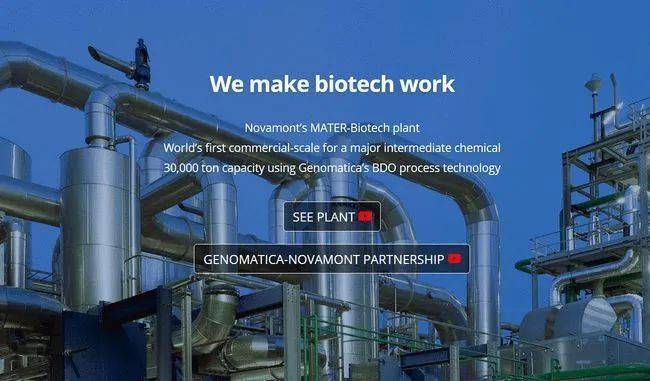
Genomatica currently holds more than 1,500 patented technologies, including the German plastics company Covestro, the American agricultural company Cargill, and the German chemical company BASF.
Genomatica said that in the future, it will work closely with Lululemon's fabric supply chain to integrate their materials into Lululemon's future products, bringing a more positive impact to the global nylon market.
Calvin McDonald, CEO of Lululemon, said: "Our partnership with Genomatica and our investment in them underscore our commitment to launching products that are better for the environment and the future. Their innovative materials based on biochemical technologies, as well as their proven track record of commercializing environmentally friendly solutions, will help us better reduce the environmental impact of our products and help us achieve the goals set out in our environmental impact agenda. ”
Christophe Schilling, CEO of Genomatica, said: "We are proud to be working with Lululemon, who has taken many substantial steps to mitigate their impact on the environment. By combining biochemicals, fermentation technologies and renewable materials, we are able to provide the garment industry with a powerful tool to become more environmentally friendly and sustainable. This partnership will help us meet growing consumer demand, launch more eco-friendly products, and set an example for the industry." ”
Patty Stapp, Lululemon's vice president of raw materials, said: "Replacing the petrochemicals in most raw materials with sustainable materials is an important step towards achieving our sustainability goals. By replacing our nylon with a more environmentally friendly product, it will have an impact on half of the synthetic products used in our supply chain. Genomatica has repeatedly introduced industry-changing eco-friendly materials and successfully commercialized them. We are very confident in this collaboration, which will change our supply chain and become more environmentally friendly while ensuring product quality." ”
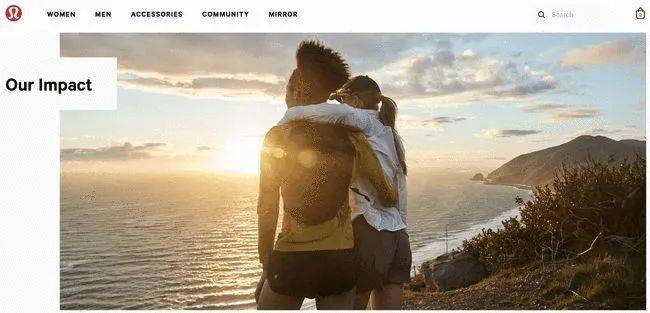
Last October, Lululemon released its first Impact Agenda, outlining years of social and environmental efforts, as well as future strategies. This includes, by 2030, 100% of products use sustainable materials, moving towards a circular ecosystem; by 2025, products use at least 75% sustainable materials; by 2025, provide consumers with new choices, extend the service life of products, etc. (See The Magnificent Chronicles History: Lululemon Unveils First Impact Agenda to Outline Long-Term Sustainability Strategy))
In July, Lululemon also launched a range of yoga accessories made from the new material Mylo ™, a faux-leather material made from mycelium. (See The Magnificent Chronicles report: Lululemon releases yoga mats and bags made from mushroom hyphae)
(Source: Hualizhi)
"Plastic" to create unlimited possibilities! Master Kong launched the PET project to help green China
With the continuous deepening of the sustainable development strategy and the further improvement of China's awareness of ecological environmental protection, the recycling and reduction of disposable plastic packaging has become a hot topic in the field of environmental protection. In this context, on August 31, Master Kong's "'Plastic' Creation of Infinite Possibilities, Practicing Carbon Neutrality" PET project press conference was held at the Shanghai Disney Hotel, at which the Financial Associated Press and Sullivan released the "2021 Carbon NeutralITY PET Bottle Sustainability Report".
As one of China's leading beverage companies, Master Kong further deepened his cooperation with Shanghai Disney Resort, set up two PET empty bottle recycling machines in the two theme parks of Shanghai Disneyland's Dream World and Treasure Bay, and participated in the new "Youth Project" of Shanghai Disney Resort to help raise the environmental awareness of young people.
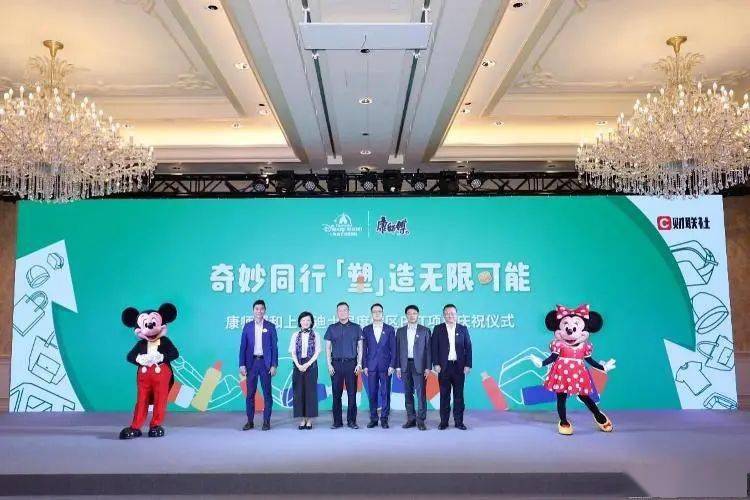
Carbon neutrality: "plastic" creates endless possibilities
At this year's two sessions, the "14th Five-Year Plan" and the 2035 long-term goal outline will accelerate the promotion of green and low-carbon development into it, and at the same time propose to strengthen the prevention and control of the whole chain of plastic pollution, improve the urban waste recycling and sorting system, promote the "reverse recycling" of production enterprises and other models, and establish and improve the online and offline integration, flow to controllable resource recovery system.
As early as last year, the Shanghai Municipal Government issued the "Shanghai Municipal Implementation Plan on Further Strengthening the Control of Plastic Pollution" and put forward the action targets for the next three years. This year's goal is that the consumption of disposable plastic products in the city has been significantly reduced, alternative products have been effectively promoted, and the proportion of plastic waste resourced energy utilization has increased significantly.
Ji Ying, vice president of Shanghai Poster Industry Group, stressed that PET recycling is a very important part of the entire sustainable development strategy. Shanghai Poster Group has always adhered to the value of transmitting sustainable development, and has been responsible for improving the public's environmental awareness and environmental protection knowledge. As a mainstream financial media in China, the PET project activity jointly launched by The Financial Associated Press with Master Kong and Disney is a vivid practice and beneficial attempt for Shanghai enterprises to participate in the "carbon neutrality" activity.
"Plastic control" action to develop a new model of recyclable plastic economy
As we all know, the beverage industry is one of the main users of plastic packaging, of which PET bottles are the most common beverage packaging. According to the data, China's bottle PET domestic demand consumption in 2019 has reached 5.75 million tons, accounting for about 23.8% of the world; and due to export needs, China's total bottle PET consumption has increased to 9.49 million tons in 2020.
"But fortunately, under the existing recycling system, the recovery rate of PET beverage bottles in China has reached more than 94%, which is at the international advanced level." Zhang Jinze, chairman of the China Beverage Industry Association, said, "It can be seen that we already have a good FOUNDATION for PET recycling. In the future, on the basis of consolidating our advantages, we need to promote a new model of recyclable plastics economy by manufacturers, distributors, consumers, resale companies and the media. ”
As a leading enterprise, under the guidance of national policies, Master Kong put forward the strategic concept of sustainable development of energy conservation and emission reduction of "evergreen homeland, health is a blessing", of which the sustainable development exploration of PET beverage packaging materials is an important part of the strategy. Based on the 100% recyclable attributes of PET bottles, Master Kong further advocates the 3R sustainable development vision of "no waste, no abandonment", starting from taking each empty bottle seriously, hoping to effectively reduce the adverse impact of its own operation on the environment and climate change by reducing the use, innovative packaging and recycling, and calling on the industry and industrial chain to cooperate with innovation to provide sustainable source power for sustainable development.
"After several years of hard work, our active exploration in the field of PET sustainability has begun to bear fruit. Last year, four factories of Master Kong Beverage Hangzhou, Wuhan, Guangzhou and Hefei reached a cooperation with Veolia Group, a Fortune 500 company dedicated to energy and material-related solutions, to jointly promote the R-PET project, that is, to produce waste PET into non-food-grade PET bottles or fibers through innovative technology, and then make the fiber into employees' daily work uniforms, so as to complete the closed-loop recycling of waste PET. Chen Yingrang, chief executive officer of Master Kong Holdings Limited, said in his speech.
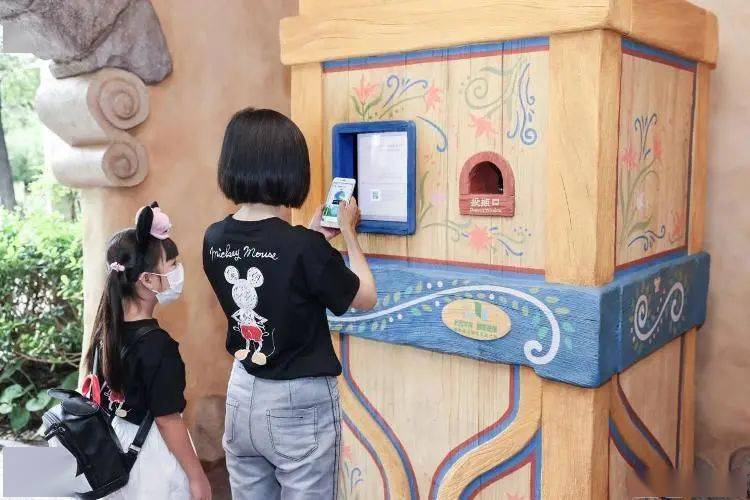
Edutainment and public awareness of environmental protection
Globally, although the recycling rate of plastic bottles between countries is similar, the recycling operation of countries varies greatly. Unlike the "active recycling" behavior of the citizens of Western developed countries, China's solid waste recycling work such as plastic bottles relies more on "waste pick-up teams" and "tourists" to complete.
The "2021 Carbon NeutralITY PET Bottle Sustainable Development Report" released at the meeting also mentioned that the primary challenge in China's current PET recycling work is that the awareness of recycling by the whole people needs to be improved, and the public environmental education is relatively weak. To change this situation, it is necessary for all sectors of society to pay great attention to it, and the government, enterprises and relevant organizations will work together.
In line with the attitude of social responsibility, in recent years, Master Kong has been taking young consumers as the main force in practicing sustainable development, and has carried out various edutainment activities for young people, including internal parent-child activities and external water education public welfare activities, aiming to strengthen the awareness and participation of young people in plastic recycling.
As an important force in China's tourism industry, Shanghai Disney Resort has always paid attention to the care and protection of the environment. Zhuang Weiming, Director of the Shanghai Disney Resort Corporate Alliance, said: "We hope to inspire young people and their families to admire and appreciate the beautiful nature through colorful and educational environmental protection activities, encourage visitors to join environmental protection practices, establish values for protecting nature, and protect the earth together." ”
It is reported that the PET empty bottle recycling machine put by Master Kong in the Shanghai Disney Resort is an important experience facility in the new youth project of "Disney Classification and Re-creation of Wonderful Behavior". Let young people learn to use recycling machines, understand the importance of PET recycling, but also facilitate tourists to recycle discarded beverage bottles, in the harvest of happy play experience at the same time with practical actions to practice the concept of environmental protection.